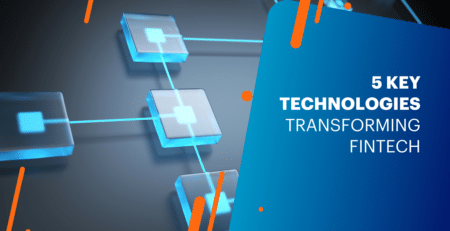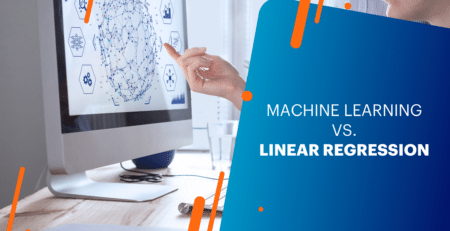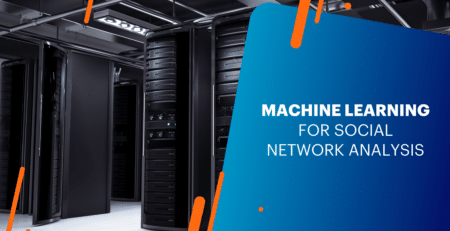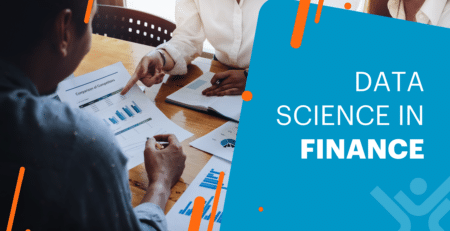1. Smarter Banking with AI
AI is transforming banking services into highly personalized and efficient experiences.
Traditional banks are moving away from manual processes, using AI-driven tools to automate customer service and financial management.
- Personalized Customer Service: Chatbots and virtual assistants leverage natural language processing (NLP) to interact with customers. These bots can answer queries, assist with transactions, and provide financial advice in real-time, saving banks millions annually in customer service costs .
- Fraud Detection: AI systems analyze transactional data in real-time, identifying unusual patterns. For instance, an unexpected login from a foreign IP address can trigger alerts. This significantly reduces the time it takes to respond to potential threats .
- Predictive Insights for Banking Operations: Machine learning models forecast customer needs, enabling proactive engagement. For instance, analyzing savings patterns can help banks suggest tailored financial products, such as investment accounts or low-interest loans.
These applications highlight how AI not only enhances efficiency but also makes banking more customer-centric.
2. Algorithmic Investments: Precision Meets Accessibility
The use of algorithmic trading and robo-advisors has democratized investing.
These AI-driven tools process vast amounts of market data to generate insights and optimize investment strategies.
- •Algorithmic Trading: AI algorithms execute trades at lightning speed, based on pre-programmed conditions. This includes high-frequency trading, where decisions are made within milliseconds to take advantage of market fluctuations .
- •Robo-Advisors: Platforms like Betterment and Wealthfront offer automated portfolio management. These tools evaluate user risk profiles and financial goals to create personalized investment strategies, making wealth management accessible to individuals without high net worth.
Moreover, advanced predictive models consider economic indicators, sentiment analysis from news articles, and even geopolitical trends, ensuring smarter decisions in volatile markets.
3. Revolutionizing Lending and Credit Assessment
Traditional credit scoring models often exclude individuals without established credit histories. Data science is chaging this by incorporating alternative data sources.
- Alternative Credit Scoring: AI evaluates non-traditional data points, such as rental payments, utility bills, and even social media behavior. This inclusivity allows underserved populations, such as gig workers or small business owners, to access loans .
- Fraud and Default Risk Management: Machine learning models assess potential default risks by identifying patterns in borrower data, such as inconsistent income streams or sudden changs in spending behavior.
This shift not only expands financial inclusion but also makes lending more secure by reducing risks of defaults and fraud.
4. Fraud Prevention on a Whole New Level
Financial fraud costs institutions billions annually, but AI-powered systems are reducing these losses significantly.
- Behavioral Analytics: AI systems analyze user behavior to detect anomalies. For example, sudden, high-value transactions from an account with limited activity can flag potential fraud .
- Enhanced Transaction Monitoring: Systems like AI-powered anti-money laundering (AML) solutions scan transactions for patterns associated with illicit activities. By combining these insights with blockchain for traceability, institutions can maintain compliance and deter fraud .
These systems don’t just react—they predict, enabling institutions to mitigate risks before they escalate.
5. Compliance and Risk Management
Compliance with financial regulations is complex and resource-intensive. AI simplifies this through automation and advanced analytics.
- RegTech Solutions: AI systems monitor regulatory changes and ensure compliance by automating documentation and reporting processes. Blockchain adds another layer by creating immutable records of transactions .
- Risk Scoring Models: AI-based predictive analytics assess risks in real-time. For instance, these models can predict the impact of market changes on asset portfolios, enabling institutions to make informed decisions quickly.
By automating these tasks, financial institutions save time and reduce the risk of human errors, ensuring smoother operations.
6. Financial Inclusion
One of the most significant impacts of data science and AI in FinTech is breaking down barriers to financial services.
- Peer-to-Peer Lending: Platforms like LendingClub use data-driven risk assessment to connect borrowers with lenders, bypassing traditional banks .
- Microfinance: AI algorithms identify underserved populations and tailor financial products to meet their needs. For instance, they can assess the viability of extending microloans to individuals based on mobile payment records .
This inclusive approach doesn’t just expand market opportunities for institutions—it also empowers communities by offering access to essential financial tools.
7. Shaping the Future with Cryptocurrency and Blockchain
Blockchain technology and AI are transforming how we think about money and transactions.
- Smart Contracts: Blockchain-based smart contracts execute automatically when predefined conditions are met, reducing the need for intermediaries in financial transactions .
- AI-Powered Crypto Analysis: Predictive analytics models analyze market trends and investor sentiment to provide insights into cryptocurrency performance. These toolls are vital in navigating the volatile crypto markets .
While cryptocurrencies face challenges like regulatory uncertainty, their potential for creating decentralized financial systems is immense.
AI’s role in stabilizing and optimizing these systems is critical for their widespread adoption.
Challenges and Ethical Considerations
Despite its transformative power, the integration of data science and AI in FinTech is not without challenges.
- Data Privacy: The use of alternative data raises concerns about how personal information is collected, stored, and used.
- Algorithmic Bias: AI models are only as good as the data they are trained on. If historical data is biased, the decisions made by these models may perpetuate inequaliity .
Ensuring ethical AI practices and robust data governance frameworks is crucial for building trust and delivering equitble solutions.
Conclusion: A Balanced Perspective on Progress
The fusion of data science, AI, and FinTech is reshaping the financial landscape, offering smarter, faster, and more inclusive solutions.
From personalized banking to fraud prevention, these technologies hold the potential to revolutionize the industry.
However, as we embrace this progress, addressing ethical concerns and ensuring transparency will be key to realizing the full benefits of these innovations.
For deeper insights, consider exploring resources like this comprehensive article on AI in FinTech or a detailed study on data science applications. Together, we can navigate this exciting transformation with optimism and caution.













